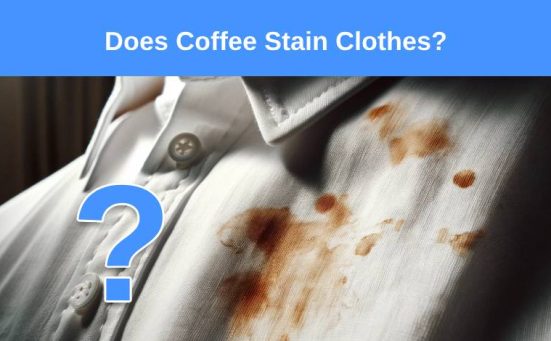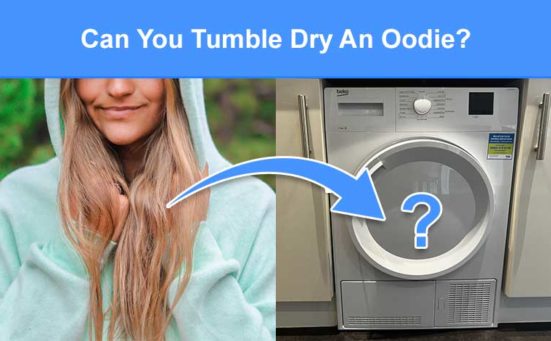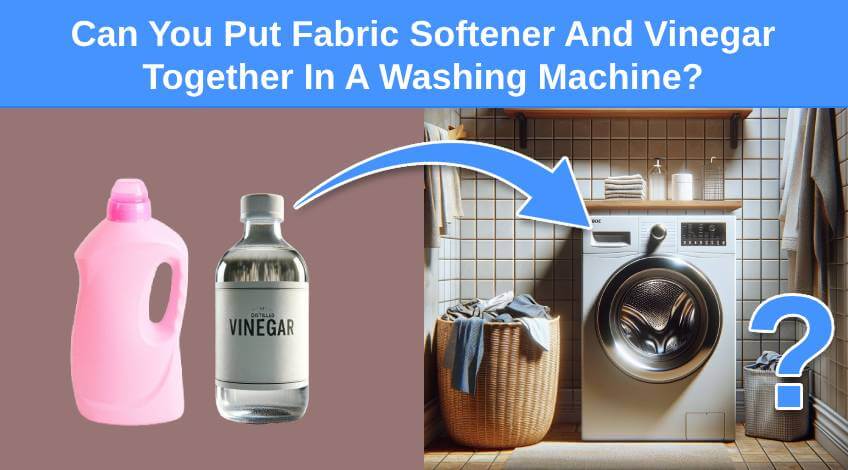
Can You Put Fabric Softener And Vinegar Together In A Washing Machine?
Yes, it is okay to put fabric softener and vinegar in the washing machine together. Both products are great for making fabrics soft and smell nice, and when they are used at the same time, may boost the effects resulting in clean and fresh-smelling laundry.
However, if you want to maximise their benefits and save your money, it’s best to use each product separately, as there is a possibility that mixing white vinegar with fabric softener may neutralise its effects! But why?
We’ll explain the reason in more detail, and teach you why you should start using white vinegar in your laundry sessions in this article!
The Science Behind Mixing Vinegar and Fabric Softener
The reason why we recommend using fabric softener and white vinegar separately is that mixing them can result in a chemical interaction that will render the fabric softener useless.
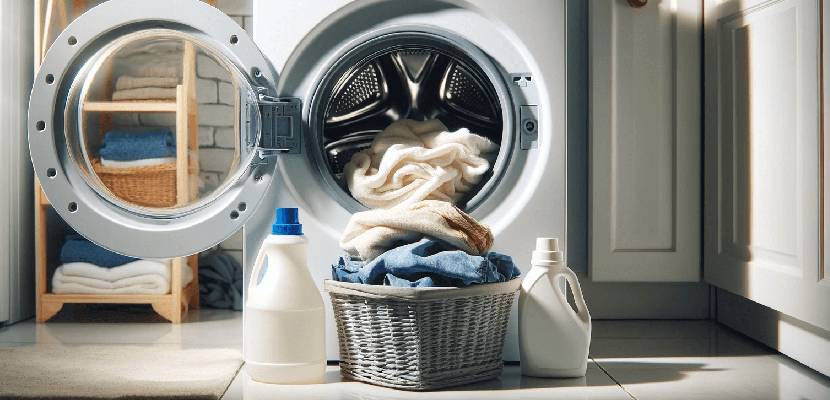
This is because fabric softeners are typically cationic (positively charged), while vinegar, being an acid, is anionic (negatively charged), which may just neutralise the chemicals in fabric softener. This could be a waste of money.
If you really want to use both at the same time, we recommend using only half a cup of white vinegar with your fabric softener. Or, use a 1-part vinegar to 4-parts fabric softener ratio.
Feel free to adjust the amount if you’re washing more clothes.
Potential Downsides of Mixing Vinegar and Fabric Softener
Here are the reasons why combining white vinegar and fabric softener is not a good idea:
May Cause Odour Issues
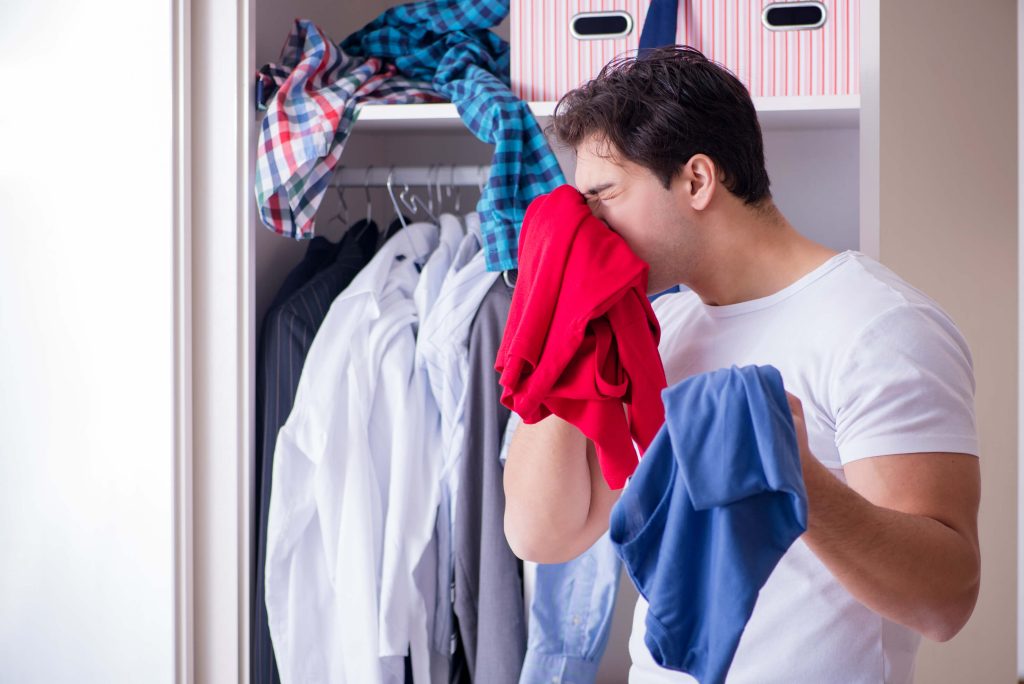
Aside from the chemical reaction that may neutralise the effects of the products, mixing the two may result in odour issues. After all, vinegar has a strong and distinct smell. When it is mixed with fabric conditioner, it can change or overpower the latter’s fragrance, which may make your clothes smell sour.
May Build Up Residue
The combination of white vinegar and fabric softener can lead to residue build-up on your clothes and inside the washing machine. This residue might not only affect the texture of your fabrics, making them feel different than intended, but it can also affect the machine’s performance over time.
May Damage Washing Machines

Using white vinegar and fabric softener on a regular basis could damage some parts of your washing machine over time. Make sure to read your machine’s user manual as some manufacturers may advise against the use of vinegar in particular models.
May Reduce Softness And Cause Colour Bleeding
Most fabric softeners are designed to work independently to soften fabrics and reduce static. Mixing them with vinegar might diminish their effectiveness, meaning your clothes might not get as soft as they would with the fabric conditioner alone.
Depending on the fabric type and the dyes used, the acidic nature of vinegar mixed with fabric softener could potentially cause colour fading or bleeding, especially when mixed with other laundry products.
May Irritate Skin
For people with sensitive skin or allergies, the combination of white vinegar and softener could lead to skin irritation or trigger an allergic reaction. It’s always best to follow the recommended usage for each product to avoid such issues.
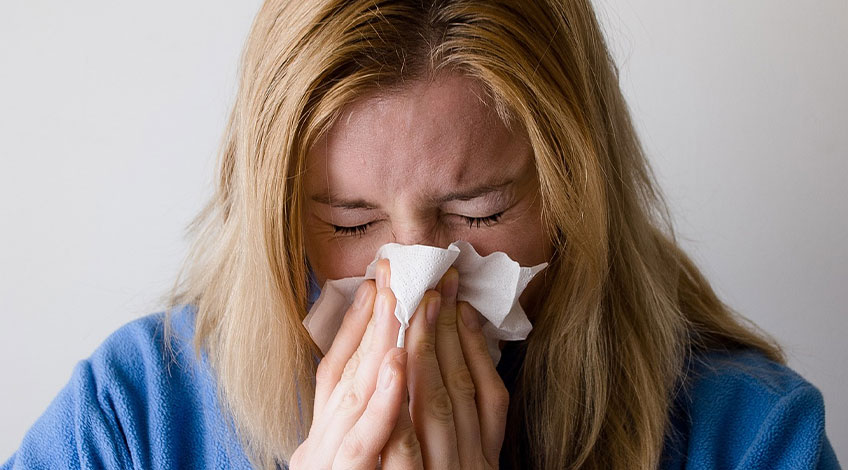
Fabric Softener Vs White Vinegar
| Fabric Softener | White Vinegar |
|---|---|
| Makes Clothes Soft | Makes Clothes Soft |
| Very Fragrant | Eliminates Odours |
| Reduces Wrinkles | Disinfects Garments |
| Reduces Static Cling | Reduces Static Cling |
| Makes Ironing And Folding Easier | Brightens Clothes |
| Removes Stains | |
| Can Clean Washing Machine |
Fabric Softener (enhancing softness and fragrance)
Fabric softeners are popular laundry products that are primarily used to make garments soft and smell wonderful after coming out of the wash. They come in different fragrances and, depending on the brand, may even have antibacterial properties that will make your fabrics more clean.
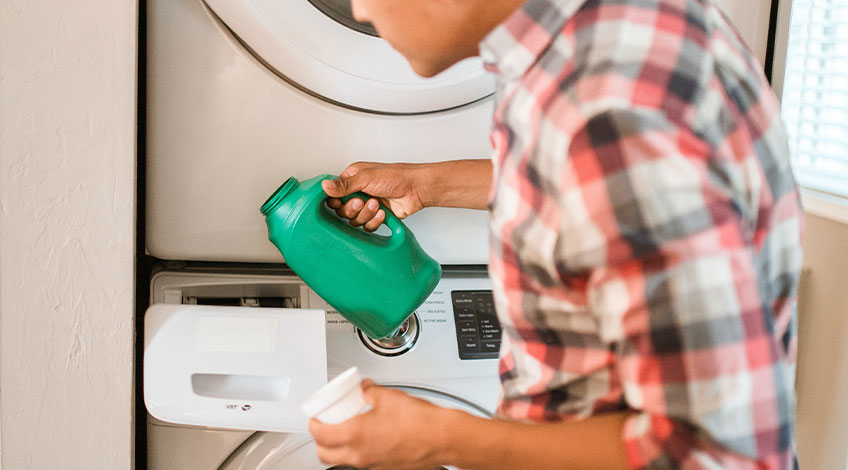
Advantages Of Fabric Softener In Laundry
There are many benefits to using fabric softener in your laundry. Here are some of them:
- Adding Softness
The main benefit of fabric softeners is that they help make fabrics feel softer to the touch. This is because they are formulated to reduce the stiffness of the fibres, resulting in a more pleasant feel against the skin. - Making Clothes Fragrant
Fabric softeners often contain fragrances that leave clothes smelling fresh and clean. This can be particularly appealing if you enjoy having a specific scent on your garments. - Reducing Wrinkles
This is especially beneficial for items that are prone to wrinkling, as it can save time on ironing. - Reducing Static
Static cling occurs when fabrics rub together, especially in dry environments. Fabric softeners help to reduce this static cling, making clothes more comfortable to wear and easier to handle during folding and ironing. - Easing Ironing And Folding
By making fabrics softer and reducing static, fabric softeners can make ironing and folding clothes easier.
White Vinegar (a natural alternative for laundry care)
White vinegar, specifically distilled white vinegar, is a wonderful solution for smelly clothes, and will also make garments softer after being washed. It’s used as an alternative to fabric softener, especially for those who don’t like to use a lot of chemicals.
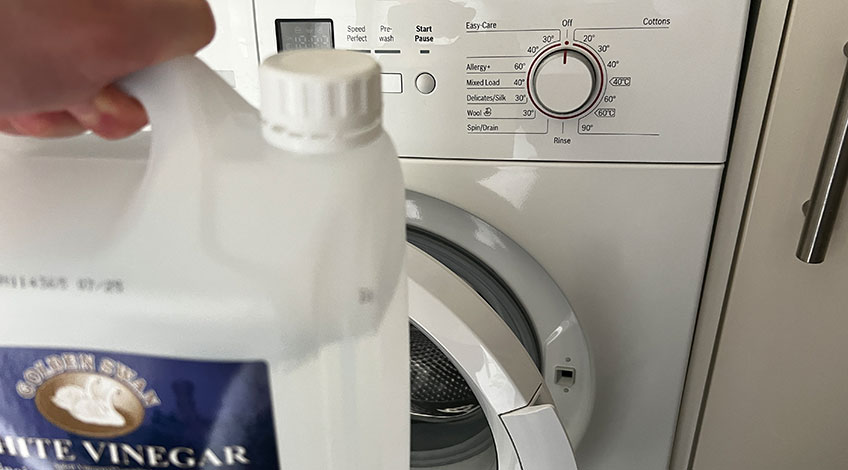
Advantages Of White Vinegar In Laundry
There are many benefits to using white vinegar in your laundry. Here are some of them:
- Eliminating Odours
White vinegar gets rid of mouldy or mildewy smells on fabrics. If you often forget your clothes in the washer, chances are they’ll smell bad. Wash them again and add a cup of white vinegar to the wash cycle to remove the musty smell. - Brightening Clothes
White vinegar can brighten your clothes. If you have white fabrics that appear lacklustre, soaking them in a basin of water with half a cup of vinegar can brighten them again. - Reducing Static Cling
White vinegar reduces static cling on your fabrics. It can also reduce the amount of hair that’s annoyingly sticking to your clothes after washing them. - Disinfecting Properties
White vinegar kills germs and bacteria on your clothing, as it has disinfecting properties that remove the smell of sweat from your garments. - Maintaining Colour Vibrancy
White vinegar also keeps your coloured clothes vibrant! If you have dull garments, adding half a cup of white vinegar to the rinse cycle will work wonders. - Neutralising Strong Odours
White vinegar can neutralise strong odours. Even with cigarette smoke, you’ll be able to notice that the smell will be gone if you incorporate vinegar in your laundry sessions. - Stain Removal
White vinegar can remove stains, especially oil-based ones. - Cleaning Your Washing Machine
White vinegar can also do a great job of cleaning your washing machine. Since it is effective in removing mineral deposits, you can use it as a natural descaler. It will also remove detergent and fabric softener residue. Just put a cup in the washer’s drum or in the fabric softener compartment, then run an empty hot wash cycle. Once done, run another empty wash cycle to remove any vinegar residue.
WARNING: The acidic nature of white vinegar may not be suitable for delicate fabrics. To lessen its acidity, dilute white vinegar with water.
Where To Put Vinegar In Your Washing Machine
If you’re wondering where to put the white vinegar in your washer, you can put it in the fabric softener dispenser if you’re using a front-loader. If you’re using a top-loading washing machine, put it directly in the drum.
Cautions and Alternatives To Using Vinegar
- Avoiding Harmful Mixes
Avoid mixing white vinegar with other products such as bleach, as it can create toxic fumes that are harmful to inhale. - Alternative to White Vinegar
Another alternative to white vinegar is bicarbonate of soda. - Fabric Care Labels
Not all fabrics can get washed with white vinegar. Make sure to read your fabrics’ care labels. - Potential Damage to Washing Machines
The acidic nature of white vinegar might damage the rubber and metal parts of your washing machine over time. Always rinse or wipe parts with water to remove the excess vinegar residue.
Making the Right Choice for Your Laundry
While it is possible to use fabric softener and vinegar together in the washing machine, it is generally recommended to use them separately to maximise their individual benefits.
White vinegar, a versatile and natural laundry aid, offers numerous benefits from softening clothes to removing odours and stains. However, always be mindful of the type of fabrics you are washing and the potential long-term effects on your washing machine.
What’s your experience with using white vinegar in your laundry sessions? Feel free to leave a comment below!
SEE ALSO: Is Fabric Softener Bad For You (or your clothes)?
Frequently Asked Questions
Yes, it is safe to put vinegar in a washing machine. Vinegar is a natural laundry aid that can soften clothes, remove odours, and even brighten fabrics. However, it’s important to use it correctly to avoid potential damage to delicate fabrics and the washing machine itself.
For laundry purposes, the best kind of vinegar to use is distilled white vinegar. This type of vinegar is effective in eliminating odours, brightening clothes, and softening fabrics without leaving any residue.
You shouldn’t mix vinegar with laundry detergent because vinegar, being acidic, can neutralise the detergent’s cleaning ability. This interaction can reduce the effectiveness of the detergent, resulting in less efficient cleaning of your clothes.
In a front-load washer, you should put vinegar in the fabric softener dispenser. This allows the vinegar to be released at the correct time during the rinse cycle for optimal fabric softening and odour removal.
Deciding whether vinegar or fabric softener is better depends on personal preferences and specific laundry needs. Vinegar is a natural, chemical-free option that softens clothes and removes odours, while fabric softener offers a range of fragrances and can make fabrics feel extra soft.

